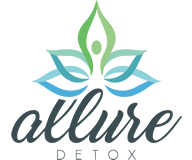According to recent studies, 10% of all U.S. adults are addicted to drugs and alcohol. Abusing alcohol is associated with an increased risk of violence, accidents, and suicide. But the number one culprit behind increased overdose death rates since the early 2000s is drug abuse and addiction, opioid drugs like heroin and prescription narcotics. Although addiction is a severe and chronic disease, it can be effectively managed. With comprehensive treatment plans, people can go on to make a full recovery from drug or alcohol abuse.
According to the National Institute on Drug Abuse (NIH), more than 67,300 Americans died from a drug-involved overdose in 2018, including illicit drugs and prescription opioids. Drug overdose deaths rose from 38,329 in 2010 to 70,237 in 2017; followed by a significant decrease in 2018 to 67,367 deaths.
Table of Contents
Naltrexone as Treatment for Opioid Dependence
There are many options for treatments of drug and alcohol addiction. For treatment to be a success, one option is patients in recovery that require integrated, holistic treatment plans. Depending on the route taken, those treatment plans will include prescriptions for medicines that are designed specifically to treat people in recovery for opioid or alcohol addiction. One medication that’s been manufactured and distributed for this purpose is Naltrexone.

What is Naltrexone?
Naltrexone reduces the chance of using opiates by blocking the effects of opioid medication, including pain relief or feelings of euphoria that can lead to opioid abuse. Naltrexone is used as part of a treatment program for not only opiates but alcohol dependence too.
Naltrexone can be used as an extended-release, monthly injection, or as a daily oral pill. Both are used to prevent relapse in people who became dependent on opioid medicine or a narcotic drug such as heroin and then stopped using it. Naltrexone can help keep you from feeling a “need” to use the opioid. Naltrexone is not a cure for drug addiction but rather an aid used in long-term treatment to continue to eventually stay abstinent from using opiates.
Is a Naltrexone Overdose Possible?
Sometimes Naltrexone can cause uncomfortable side effects and when taken in large doses and can cause liver damage. If you notice any of the following signs, contact your doctor right away:
- Extreme fatigue
- Appetite loss
- Unusual bruising or bleeding
- Pain in the right upper abdomen
- A yellowish color in your skin or eyes
- Dark urine
- Confusion
- Depression
Taking more than the prescribed dose can also cause you to overdose, which actually will put you into full-blown and very painful opiate withdrawal. Another way to risk overdose is if you try to overcome the actual Naltrexone blocker effect in drugs such as Vivitrol by consuming large amounts of drugs or alcohol.
At Allure Detox, we can prepare you for the road to recovery with our medical detox. The priority of a detox is to help patients stop using drugs and alcohol safely. But Allure’s Medical detox offers more: a renewed love of life.
The first requirement of a detox center is that it protects the health and safety of its patients. This is the least that substance abusers and their families should expect from a decent facility. Without these protections in place, the detox doesn’t serve a purpose in the recovery process.
Treatment and Detox for Drug Addiction
Allure Detox’s promise is that patients leave our care with more than good health at their disposal. Our focus is on minimizing your withdrawal symptoms to a comfortable level while beginning the comprehensive treatment process that will keep you sober.


